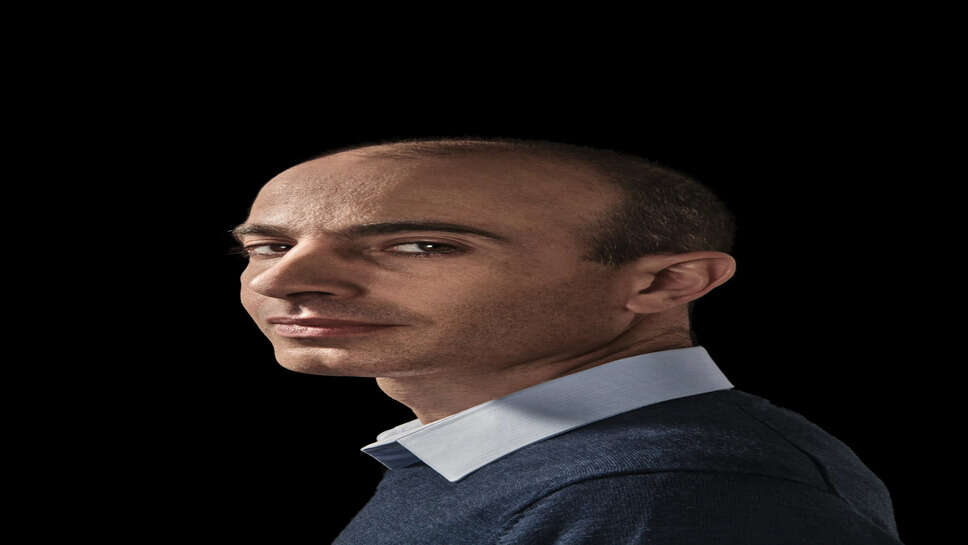A Future Without Borders: Harari’s Chilling Vision of the AI Age"

As artificial intelligence (AI) evolves at breakneck speed, voices of caution are growing louder. One of the most prominent among them is historian and philosopher Yuval Noah Harari, who warns that the rise of AI may not only change the world but fundamentally redefine what it means to be human.
In recent global forums and interviews, Harari has raised the alarm: AI is not merely a tool or trend—it is a force powerful enough to reshape geopolitics, erase national borders, and displace entire professions and ways of life. His central message is both profound and unsettling: humans are building something they may not be able to control.
The End of Borders as We Know Them
According to Harari, the traditional model of the nation-state—with borders, passports, and central governments—may be rendered obsolete in a world dominated by data and AI. Unlike physical goods or people, algorithms and data streams do not respect national boundaries. An AI trained in one country can instantly operate in another. A machine learning model can outthink a person, regardless of geography.
In such a world, questions about sovereignty become complicated. Who controls AI? Who is accountable when it makes a decision? If a country’s economy is run by an algorithm developed abroad, where does political power lie?
For Harari, the erosion of physical borders is not just a technical issue—it is a crisis of governance. As he puts it, the world is heading toward a "post-border" era, where traditional laws and regulations may no longer apply, or may be impossible to enforce.
From Tool to Master: AI and the Human Job Market
Harari argues that AI’s capacity to learn and adapt threatens not only blue-collar jobs, as earlier industrial revolutions did, but white-collar professions as well. Lawyers, teachers, customer service agents, even artists—none are immune. Generative AI models can now write stories, compose music, edit code, and produce illustrations.
Unlike past technologies that enhanced human productivity, AI has the potential to completely replace human labor in many sectors. Harari warns that this may lead to a future where mass unemployment is the norm—not because people lack skills, but because machines outperform them at nearly every level.
But the implications go beyond economics. Work has long been tied to identity and meaning. What happens when billions of people no longer feel useful? When they are outperformed, out-earned, and outpaced by machines?
The Battle Over Narratives and Truth
Another theme Harari often emphasizes is the danger AI poses to human truth. As generative AI becomes more sophisticated, the ability to create fake news, videos, voices, and even entire identities has become seamless. Deepfakes and AI-generated propaganda threaten the very foundation of democracy: informed public debate.
"If you can't tell what's real and what's not, how can you make rational decisions?" Harari asks.
In this environment, those who control powerful AI models may also control public opinion, elections, and revolutions—without ever firing a shot. This ability to manipulate perception, Harari warns, could become more dangerous than nuclear weapons.
A Future Without Human Centrality
Perhaps Harari’s most controversial warning is about the loss of human centrality. For centuries, humans have believed they are the most intelligent beings on Earth. But if AI becomes more intelligent, what happens to our self-image? Are we still the rulers of the planet—or are we handing over the reins to our own creations?
Harari doesn’t suggest that AI will become "conscious" or have emotions like humans. Rather, he warns that intelligence, in the modern world, is power—and AI will soon surpass us in power, decision-making speed, and analytical accuracy. If AI can govern better, drive better, diagnose diseases better, and even mediate relationships better, why should humans remain in control?
This line of questioning leads Harari to a frightening possibility: humans could become irrelevant—not because AI hates us, but because it simply doesn’t need us.
The Illusion of Control
A central paradox in the AI race, according to Harari, is that the people developing AI do not fully understand it. Large language models and neural networks function in ways that even their creators cannot always explain. Yet despite this, corporations and governments are pushing forward, driven by competition and profit.
Harari likens it to a global arms race where slowing down is seen as weakness. The result? Powerful AI systems deployed without adequate ethical oversight, regulation, or accountability. And once unleashed, such systems are almost impossible to contain.
This is why Harari is one of the loudest advocates for global cooperation on AI safety. He calls for a kind of “digital United Nations” where nations come together to agree on ethical boundaries, guardrails, and shared regulations. Without such cooperation, he warns, the AI revolution may end up as a catastrophe.
Hope Amid the Warning
Despite his stark message, Harari is not a doomsayer. He believes that humans still have a choice. The AI revolution, like the agricultural or industrial revolutions before it, holds the potential to improve life dramatically. But only if we approach it with wisdom, humility, and caution.
That means investing in education that emphasizes critical thinking, ethics, and adaptability. It means ensuring that AI serves humanity, not the other way around. And it means accepting that this technology is not just a technical issue—it is a deeply political and philosophical one.
The Human Future: Fork in the Road
As 2025 continues to witness explosive growth in AI capabilities, Harari's voice serves as both a warning siren and a moral compass. His message is simple but urgent: We must act before it's too late.
Will AI replace us? That question, Harari argues, depends entirely on the choices we make today. Do we design systems that empower all humans—or a few elite corporations? Do we use AI to heal divisions or deepen them? Do we retain control—or surrender it?
The future may not be written yet—but according to Harari, the pen is in our hands.
